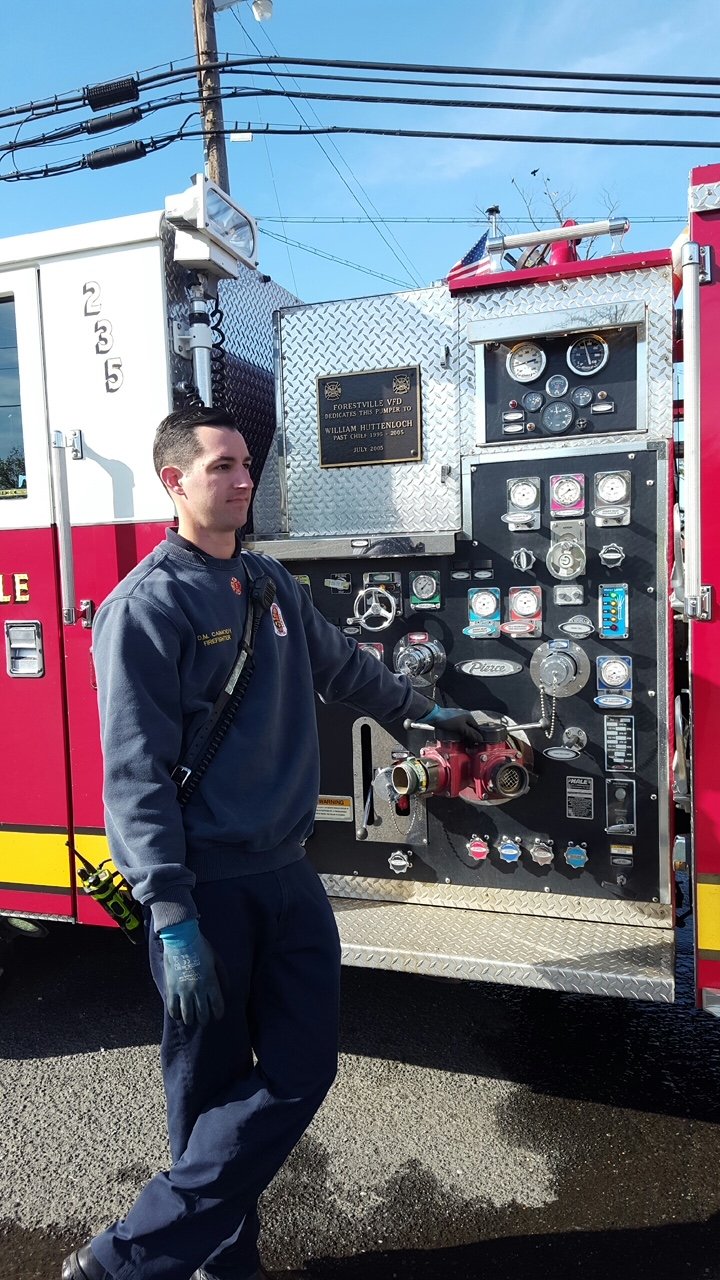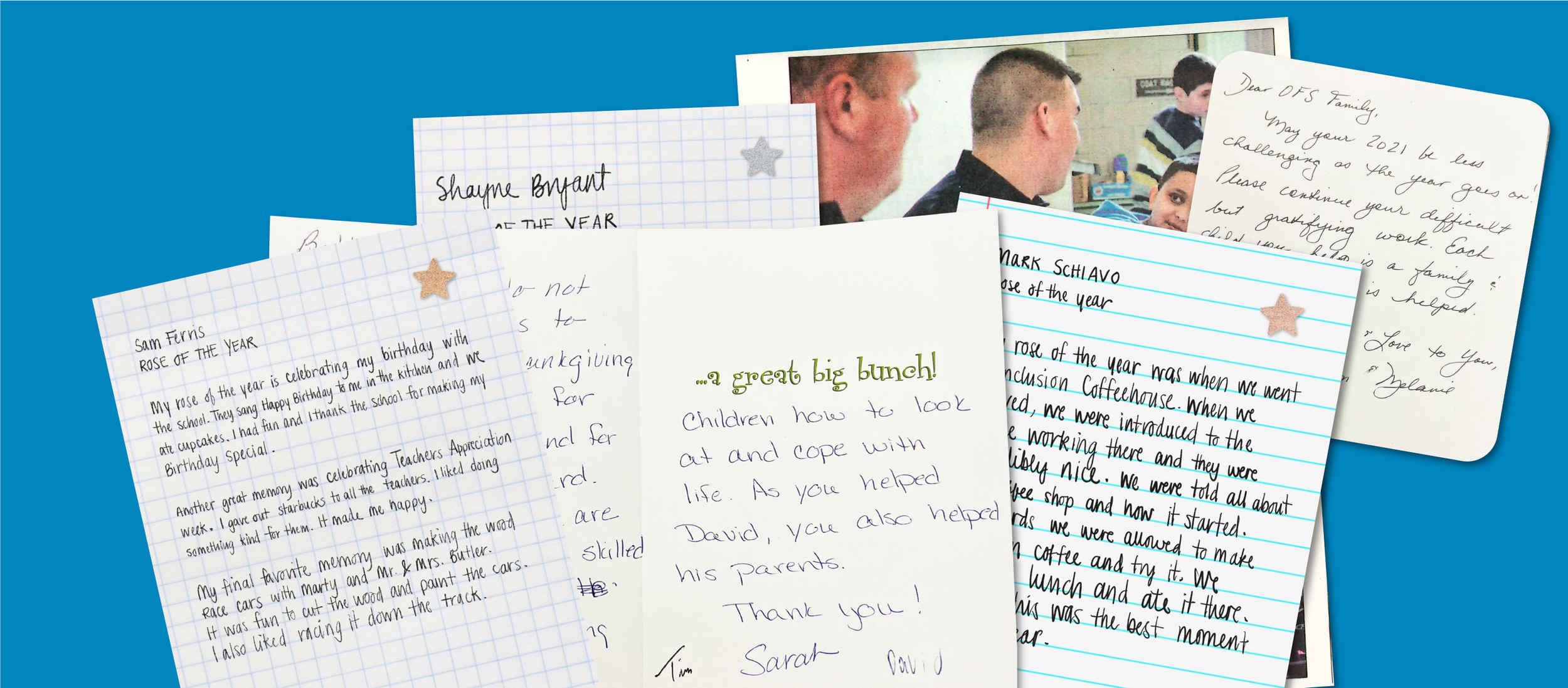
Dear Orchard Friends,
We write to you (to ourselves!) to mark a moment in time: our school’s 25th anniversary. Twenty-five years of challenges overcome, lessons learned (and not just by our students!), and lives changed. Twenty-five years of growth. Twenty-five years of enabling learning by empowering learners.In reflecting on this milestone, it feels appropriate to ask: what does it mean to celebrate Orchard Friends? The beauty and value and impact of any school—especially ours—is sprawling, multifaceted. It’s how our students and teachers connect with one another and it’s what they accomplished here as individuals and as a community. It’s everything they went on to do—and the way they carried Orchard Friends with them everywhere they went: in skills, in self-understanding, in kindness and deep empathy. Our power is our people. Our school’s legacy lives in and through them. This is our story—in their words.
One day while Melanie was sitting at a red light on Route 206, she decided to create the school she wished her son Tommy could attend. In a matter of months—and with the hard work and unwavering support of our nine original Board members—we turned that “revelation at the red light” into Orchard Friends School.We never wanted Orchard Friends to remain exactly as it was the first day we opened our doors. A school is a dynamic place: it must adapt as new best practices in education emerge, and change to meet the evolving needs of its students and of its community. Orchard Friends has done all of the above—in truly incredible ways. But the important things have never changed, and the school remains true to its original plan and purpose—to reframe how we think about teaching neurodivergent children by posing a simple question to ourselves, and to the world:What would it mean to see power in difference?
Melanie Stackhouse and Kiyo Moriuchi
Co-Founders

“At graduation, the headmaster at the time, Bill Hallowell, gave everyone a small, personalized gift. When I walked up there, he handed me a hammer, and said, ‘This is my gift to you.’ I felt that he was implying that when I put my mind to something, when I put my hand to something, I could do anything I wanted to do. And I feel like that’s a true testament to what Orchard Friends does for people.”
—Mike Carmody, Alumnus
“As soon as our new students realize Orchard Friends is different—that their teachers are their partners, that this is a school that works with me and not against me…it’s almost like you can see them decompress. They start to build their confidence and then they’re able to grow and learn because they know they’re in a safe environment, that nobody’s going to judge or make fun of them, that they’re going to be helped and that they’re going to move toward their goals.”
–Brittany Sefransky, MSE
Lower School Teacher
“With generalized education, it’s the same cookie cutter, ‘this is just how all kids learn.’ And I was like, ‘well, not for me.’ I feel like Orchard was really good at pinpointing my strengths, and saying ‘okay, there’s something there.’”
–Charlie Donegan, Alumnus

“It’s not just that every Orchard Friends student has an individualized educational experience, where they work at their pace toward their IEP goals with the support they need. It’s that our school is built on, through, and around personal relationships: between and among students, their parents, their teachers, and their care teams; between and among our students, our school, and the broader community. Because if you want to break down the barriers that hold us back—between our students’ true potential and their perceptions of what’s possible for them; between our classroom and our community; between our students and a world that is designed for neurotypical people—you have to start by connecting to one another.”
–Pam Carpenter, M.Ed., Special Education Teacher

We describe ourselves as a small school, but when it comes to impact, we are anything but. In 25 years, hundreds of students have come through our doors. That’s hundreds of students who have learned to appreciate their unique strengths, interests, and personalities. Who now understand how to work with—and even embrace—the things that are difficult for them, and how to ask for what they know they need without feeling shame. Who know that every person is a combination of strengths and challenges—and that that’s okay. Who are better navigating the world through a better understanding of themselves. I ask our students to ask themselves: Where could your power take you?—and I ask them to trust that Orchard Friends will do anything and everything in its power to help them answer that question for themselves. Beth DiPerna, M.A., Ed.S., L.A.C.
Head of School, 2015-present
Staff Speech-Language Pathologist, 2012-2016


“In the middle of my master’s program at the Peabody Conservatory, I went to the Dean and told him, ‘Listen, I am struggling to heaven and earth and back. Can I switch my major to performance?’ And without blinking, he was like, ‘Sure, of course.’ I made the switch—which is what I honestly, truly wanted to do (and what I still do today). I was singing and performing five days a week; it was the best time of my life.
Disability doesn't mean a lack of ability. In many cases, it just means we have to do things differently. And being able to self-advocate is so critical to helping people understand what you need, and to creating opportunities for yourself. This is a skill Orchard Friends really emphasized, and I’m so grateful for that. I tell people this a lot, but I don't think I would have socially turned out the way I did if it wasn't for Orchard.”
—Sarah Spivack, Alumna
“Orchard really brought me a long way—but I had to make the decision to grow. It feels good to look back and see how far I’ve come.”
–David Peterman, Alumnus
“Before Aaron left for college at Embry-Riddle to study aerospace engineering, everybody asked me, ‘Aren’t you concerned? Arizona is so far away.’ If you asked me five years ago, yes. But now, no. Because I know he will seek help when he needs it, and that he is both willing and able to advocate for himself. And he has those skills thanks to Orchard.”
–Robin Sperry, Aaron’s mom

The most important thing any of us can do is to lift, support and empower one another, and in the process, strive to grow and evolve in ways that are not only true to ourselves, but help us become the best version of ourselves. At Orchard Friends, this is how we work, how we see the world, and how we understand one another: as perfectly imperfect works in progress. Twenty-five years ago, we couldn’t have imagined in our wildest dreams all the incredible things we would do and what we would become. Where will our power take us next?
Let’s find out. Yours,
Orchard Friends
What does Orchard Friends mean to you?
Please share your favorite OFS memory or story with us so we can share them in the gallery below!













































